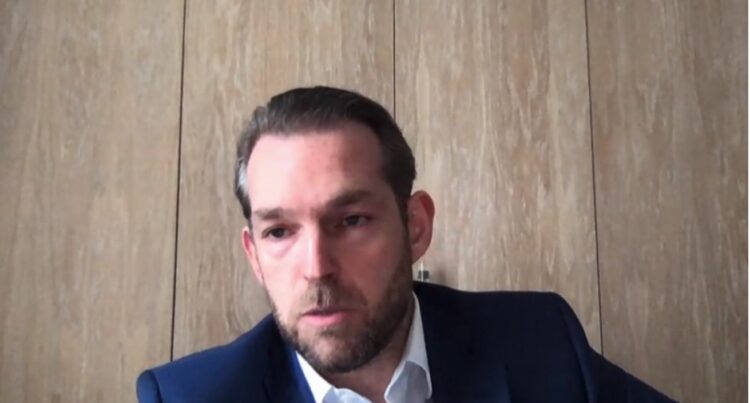How COVID-19 has put mental health high on the agenda
Maritime Exchange conference, organised by Mersey Maritime, hears how the COVID-19 pandemic had brought mental health in the workplace into sharp focus. Tony McDonough reports

We have all been impacted by the global COVID-19 pandemic and the crisis has brought mental health in the workplace into sharp focus.
That was one of the key messages that came from a panel discussion on mental health and wellbeing at the second annual Maritime Exchange conference, organised by Mersey Maritime. It featured contributions from a number of senior maritime industry figures.
Opening the session, Ben Murray, director of Maritime UK, said that in years gone by many companies had either ignored the mental health of their staff completely or treated it as a “fluffy” issue. He added: “The COVID-19 pandemic had really put mental health on the agenda.”
Mark Dickinson, general secretary of seafarers union Nautilus International, highlighted the plight of around 400,000 seafarers stranded on ships around the world. Due to the pandemic, many have spent months at sea separated from their friends and family.
This, he said, had become a humanitarian crisis with seafarers stranded on ships and unable to get home suffering feelings of isolation and anxiety and a general deterioration in their mental health. He added: “There is a fundamental question of how we treat our seafarers.”
Best practice
Ben Ludzker, chief executive of Liverpool based medical services business, Kays Medical,said the pandemic had forced the company to confront mental health challenges, not just among its client base, but also among its own team.
Mr Ludzker said that during the crisis, Kays “had been at the forefront of setting best practice”. He added: “Companies need to consider the mental health of their employees just as much as their physical wellbeing.
“Many of the companies that we deal with do not have the in-house expertise on mental health so find it more difficult to support staff with mental health issues. We are all living in unprecedented times and we have all had to learn as we go along. We need to provide as much support we can for the people around us. This is not just about the pandemic – we need to focus on this well beyond this crisis.”

Feeling valued
Cecilia Harvey, equality, diversity and inclusion lead at international engineering specialist Royal HaskoningDHV, said the problem of mental health is “amplified” because too often we make it harder for people to talk about it.
She added: “Mental health is now a recurring topic across the diversity network. Both our mental and physical health make up who we are as individuals. I’m an anthropologist and I know how important it is for people to feel valued.
“The brain does not distinguish between physical pain and mental pain. We need to end the stigma around mental health and change the narrative. Think of the importance we place on risk assessments for physical health. Those assessments need to focus on mental health as well as physical health. We have to be willing to be more open in how we deal with this.
“We don’t understand as much about mental health because, too often, mental health issues are invisible. If we see someone with a physical disability we react to that and offer help and support. But mental health issues are just as challenging as physical disabilities. We have a duty to all our staff and all the other people that we deal with to ensure people feel safe and genuinely cared for.”
Answering a question of the importance of HR and occupational health departments in tackling mental health issues Cecelia replied that it was not just the responsibility of designated departments, but the responsibility of everybody.”
Team support
Cdr Simon Howell from the Royal Navy, told the conference that he had been in the service for 39 years. His first 20 years were spent mostly at sea. Nowadays, he is land-based and he is now the CDR responsible for executive policy in the Royal Navy.
“I have spent the last six years trying to ensure that people feel valued. One of my main responsibilities is for the Royal Navy’s divisional system, which is actually around 350 years old.. We want to improve that system so that we can offer an inclusive and adaptable support structure.
“Support from within teams is essential. We firmly believe that the management of good mental health is about teamwork and team-building. It is about offering support and listening at every level of the unit.
“We have always put a big emphasis on physical wellbeing and now we have to start looking properly at mental health. Moving forward we need to realise it is a critical area that we need to get right.”
The session on mental health also included pre-recorded contributions from Maritime UK, Royal HaskoningDHV, the Manufacturing Technology Centre, Hill Dickinson, Peel Ports and West Union Business Solutions.

